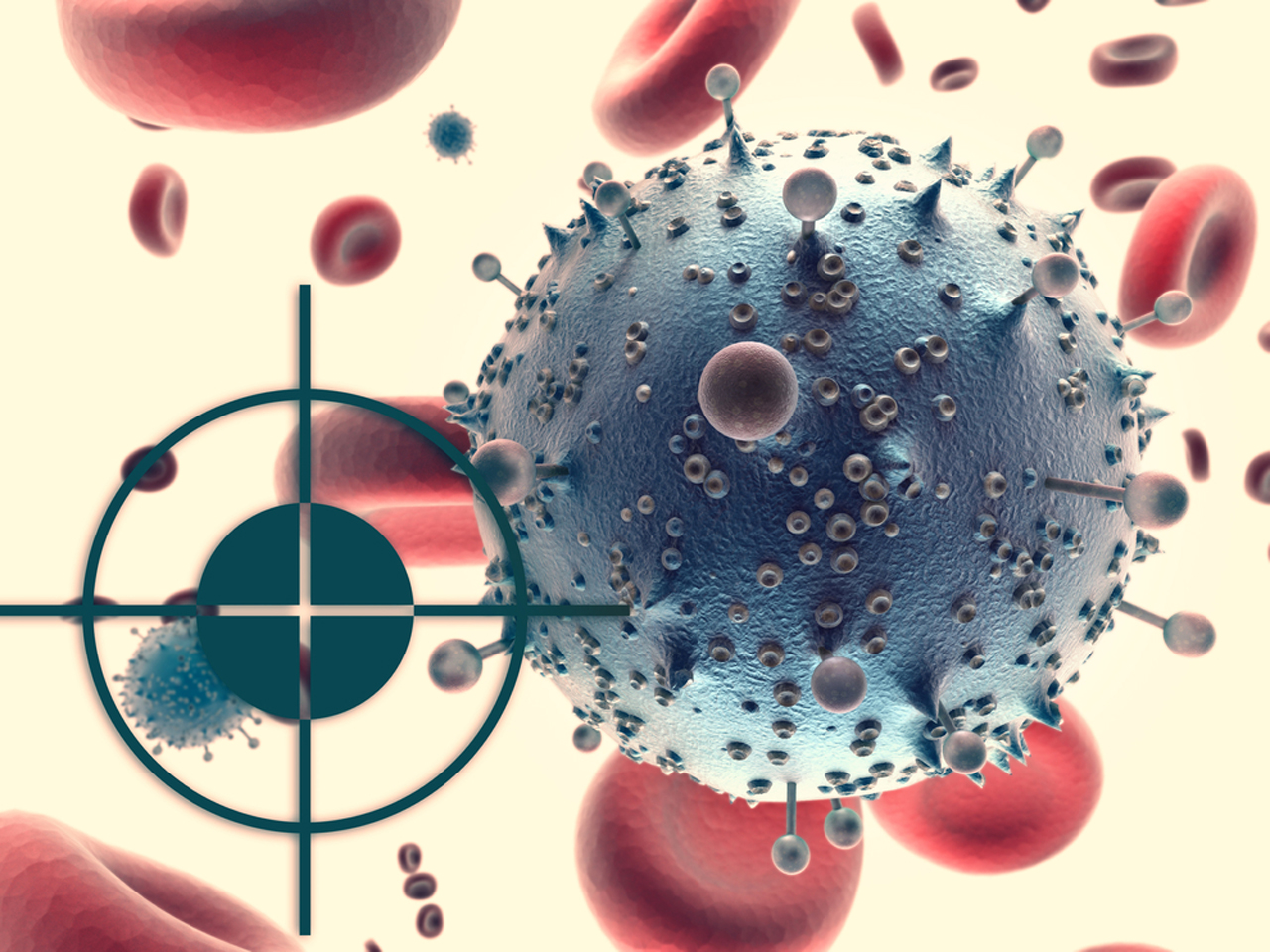
Targeted therapy or molecularly targeted therapy is one of the major modalities of medical treatment (pharmacotherapy) for cancer, others being hormonal therapy and cytotoxic chemotherapy. Targeted therapy is a special type of chemotherapy that takes advantage of differences between normal cells and cancer cells. It’s sometimes used alone, but most often other cancer treatments are used with targeted therapy. As a form of molecular medicine, targeted therapy blocks the growth of cancer cells by interfering with specific targeted molecules needed for carcinogenesis and tumor growth, rather than by simply interfering with all rapidly dividing cells (e.g. with traditional chemotherapy). Because most agents for targeted therapy are biopharmaceuticals, the term biologic therapy is sometimes synonymous with targeted therapy when used in the context of cancer therapy (and thus distinguished from chemotherapy, that is, cytotoxic therapy). However, the modalities can be combined; antibody-drug conjugates combine biologic and cytotoxic mechanisms into one targeted therapy. Targeted cancer therapies are expected to be more effective than older forms of treatments and less harmful to normal cells. Many targeted therapies are examples of immunotherapy (using immune mechanisms for therapeutic goals) developed by the field of cancer immunology. Thus, as immunomodulators, they are one type of biological response modifiers. There are targeted therapies for colorectal cancer, head and neck cancer, breast cancer, multiple myeloma, lymphoma, prostate cancer, melanoma and other cancers. Types Small molecules Many are tyrosine-kinase inhibitors. Imatinib (Gleevec, also known as STI–571) is approved for chronic myelogenous leukemia, gastrointestinal stromal tumor and some other types of cancer. Early clinical trials indicate that imatinib may be effective in treatment of dermatofibrosarcoma protuberans. Gefitinib (Iressa, also known as ZD1839), targets the epidermal growth factor receptor (EGFR) tyrosine kinaseand is approved in the U.S. for non small cell lung cancer. Erlotinib (marketed as Tarceva). Erlotinib inhibits epidermal growth factor receptor, and works through a similar mechanism as gefitinib. Erlotinib has been shown to increase survival in metastatic non small cell lung cancer when used as second line therapy. Because of this finding, erlotinib has replaced gefitinib in this setting. Sorafenib (Nexavar) Sunitinib (Sutent) Dasatinib (Sprycel) Lapatinib (Tykerb) Nilotinib (Tasigna) Small molecule drug conjugates Vintafolide is a small molecule drug conjugate consisting of a small molecule targeting the folate receptor. It is currently in clinical trials for platinum-resistant ovarian cancer (PROCEED trial) and a Phase 2b study(TARGET trial) in non-small-cell lung carcinoma (NSCLC). Serine/threonine kinase inhibitors (small molecules) Temsirolimus (Torisel) Everolimus (Afinitor) Vemurafenib (Zelboraf) Trametinib (Mekinist) Dabrafenib (Tafinlar) Monoclonal antibodies Main article: Monoclonal antibody therapy Several are in development and a few have been licensed by the FDA and the European Commission. Examples of licensed monoclonal antibodies include: Rituximab targets CD20 found on B cells. It is used in non Hodgkin lymphoma Trastuzumab targets the Her2/neu (also known as ErbB2) receptor expressed in some types of breast cancer Alemtuzumab Cetuximab target the epidermal growth factor receptor (EGFR). It is approved for use in the treatment of metastatic colorectal cancer, and squamous cell carcinoma of the head and neck., Panitumumab also targets the EGFR. It is approved for the use in the treatment of metastatic colorectal cancer. Bevacizumab targets circulating VEGF ligand. It is approved for use in the treatment of colon cancer, breast cancer, non-small cell lung cancer, and is investigational in the treatment of sarcoma. Its use for the treatment of brain tumors has been recommended. Ipilimumab (Yervoy) Many antibody-drug conjugates (ADCs) are being developed. See also ADEPT (antibody-directed enzyme prodrug therapy). By Aliyev F. References https://en.wikipedia.org/wiki/Targeted_therapy https://www.cancer.org/treatment/treatments-and-side-effects/treatment-types/targeted-therapy/what-is.html https://www.cancer.net/navigating-cancer-care/how-cancer-treated/personalized-and-targeted-therapies/understanding-targeted-therapy
If this page is in your subscriptions, then it will be removed. You will not see this page. If you want to unblock a user, go to the settings, the list of blocked users and click unblock